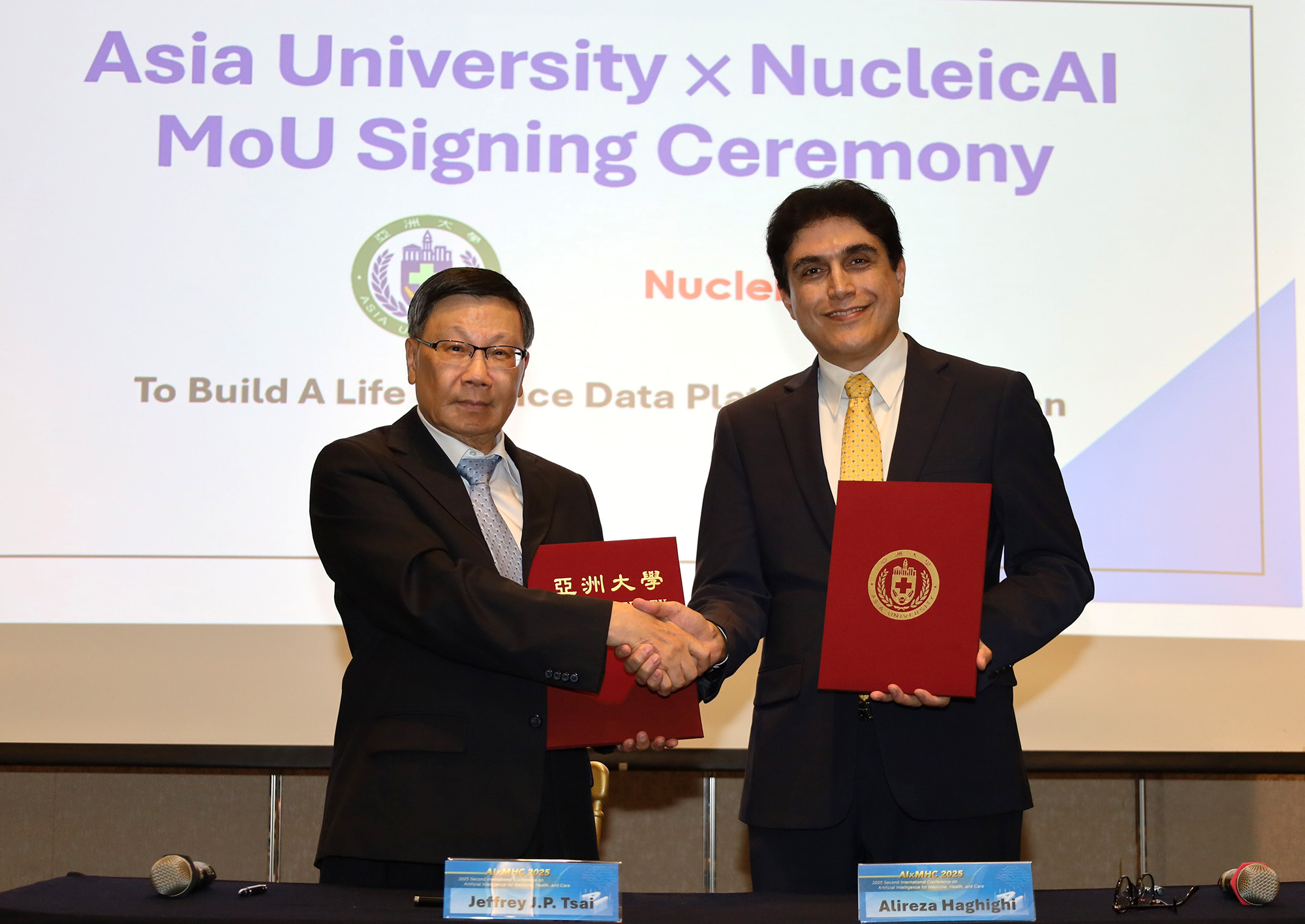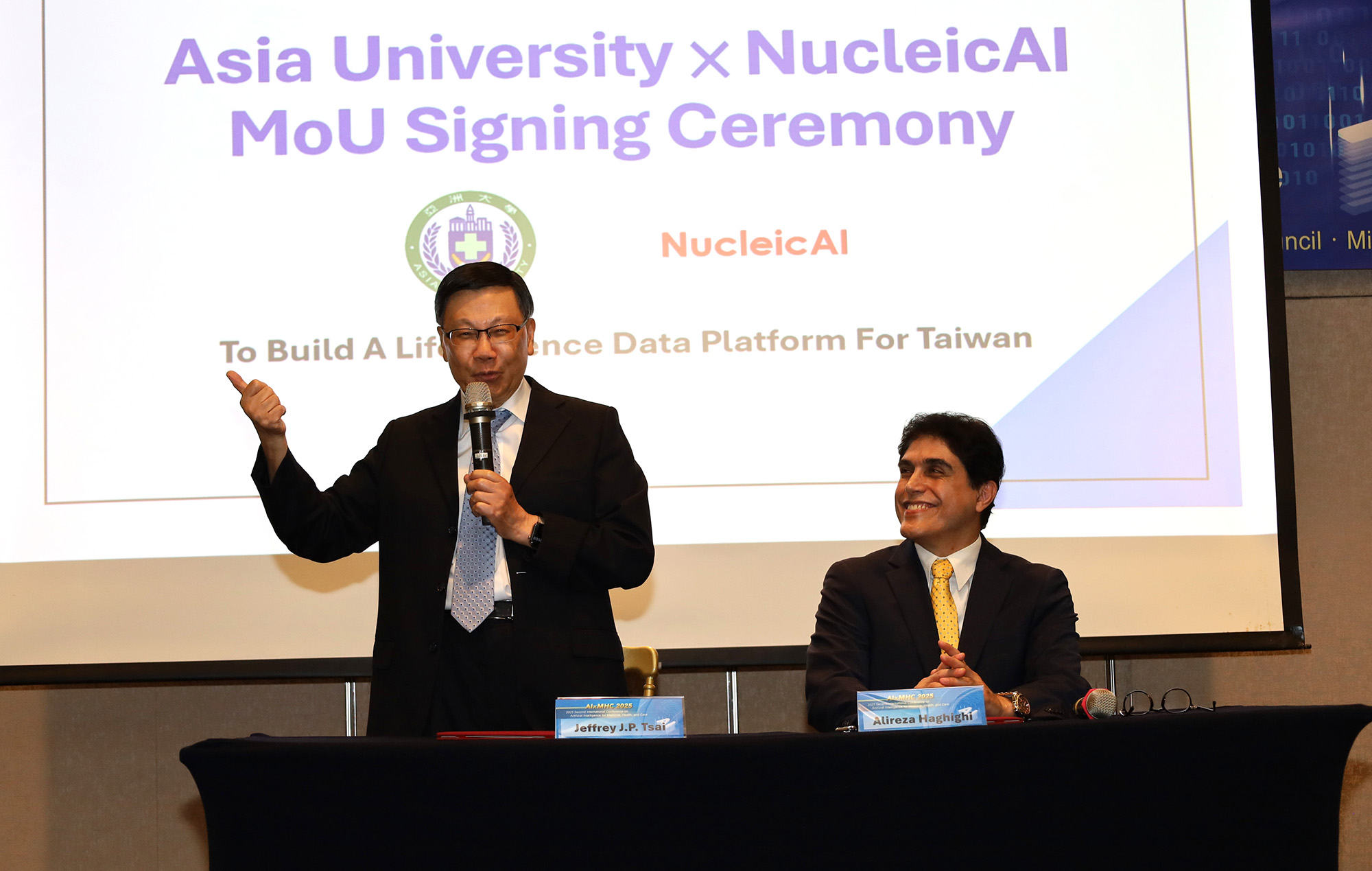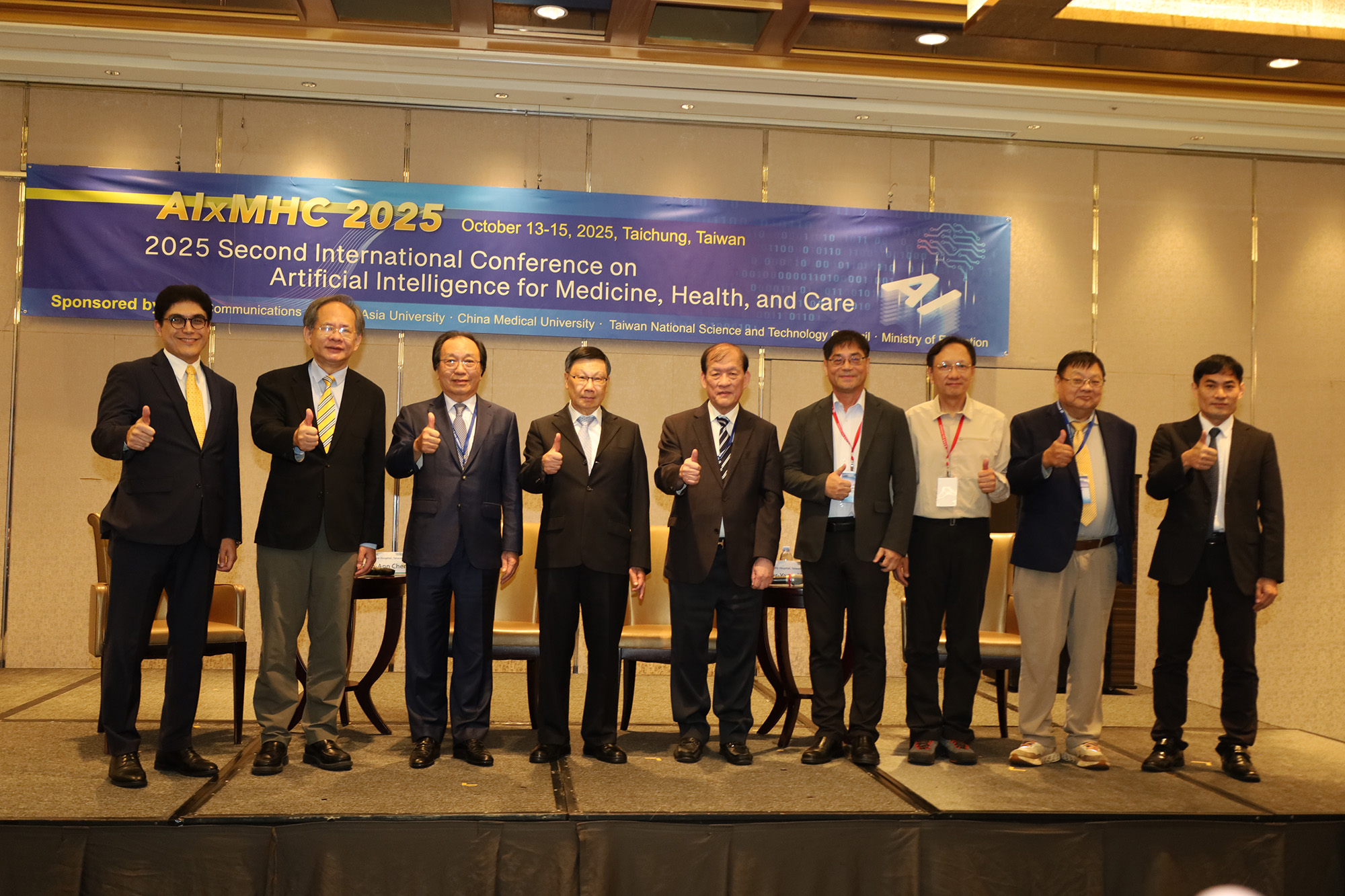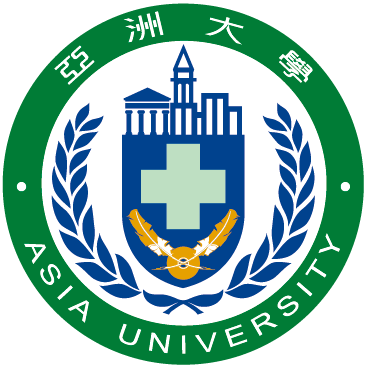Combining global cutting-edge technologies with AU’s research strengths to build a next-generation health data ecosystem
 AU President Jeffrey J. P. Tsai (left) and Professor Isaac Kohane (right), Co-founder of NucleicAI in Boston, Massachusetts, and Director of the International Center for Genetic Diseases at Harvard Medical School, signed a MOU to jointly develop a “Life Science Data Platform.”
AU President Jeffrey J. P. Tsai (left) and Professor Isaac Kohane (right), Co-founder of NucleicAI in Boston, Massachusetts, and Director of the International Center for Genetic Diseases at Harvard Medical School, signed a MOU to jointly develop a “Life Science Data Platform.”
Asia University is committed to cultivating talents for the AI-driven smart healthcare and wellness industry. On October 13, AU President Jeffrey J. P. Tsai signed a Memorandum of Understanding (MoU) with Professor Alireza Haghighi, co-founder of NucleicAI—a spin-off from the Broad Institute of MIT and Harvard—and Director of the International Center for Genetic Diseases at Harvard Medical School. Both parties will jointly develop and deploy a “Life Science Data Platform,” integrating global advanced technologies with AU’s research capacity to build a next-generation health data ecosystem.
President Tsai stated that NucleicAI, co-founded by Professor Haghighi and Harvard Medical School’s Professor David Sinclair, is an innovative company that integrates AI, genomics, and health intelligence. The collaboration originated from Tsai’s visit to NVIDIA headquarters in Silicon Valley, where he met with founder Jensen Huang to explore potential cooperation in AI and genomic data analysis platforms.
This partnership will establish and operate the data platform in Taiwan to ensure data sovereignty, enabling secure data sharing, advanced analytics, and research collaboration. It marks a major milestone in building Taiwan’s next-generation health data ecosystem and aligns closely with AU’s long-term vision for biomedical innovation and digital health development.
 AU President Jeffrey J. P. Tsai (left) noted that the collaboration with Professor Alireza Haghighi (right), co-founder of NucleicAI, originated from his visit to NVIDIA headquarters in Silicon Valley, where he met with founder Jensen Huang to explore potential cooperation on AI and medical genomics analysis platforms—laying the foundation for this partnership.
AU President Jeffrey J. P. Tsai (left) noted that the collaboration with Professor Alireza Haghighi (right), co-founder of NucleicAI, originated from his visit to NVIDIA headquarters in Silicon Valley, where he met with founder Jensen Huang to explore potential cooperation on AI and medical genomics analysis platforms—laying the foundation for this partnership.
Professor Alireza Haghighi emphasized that Taiwan holds world-class advantages in biomedical research and academic ecosystems. This collaboration aims to establish a sovereign AI biomedical data platform that will accelerate the development of predictive, preventive, and precision medicine while enabling more cost-effective drug discovery.
Professor David Sinclair noted that this forward-looking partnership will transform how data is harnessed to advance human health and longevity. He expressed his excitement to work with Asia University to showcase the limitless possibilities created by combining artificial intelligence with life sciences.
The collaboration will center on the NucleicAI platform to build a large-scale Life Science Data Platform, advancing research in genomics, epigenomics, AI analytics, and human longevity. Within the “China Medical University and Asia University System,” institutions such as Asia University, Asia University Hospital, and China Medical University Hospital will progressively integrate and securely manage biomedical and health-related data on this platform. The initiative will promote interdisciplinary research, privacy-preserving analytics, AI-driven insights, and broader collaboration with international academic and industry partners.
President Jeffrey J. P. Tsai stressed that both parties will strictly adhere to global data governance standards and regulatory frameworks to ensure data sovereignty and security. He highlighted that in the age of artificial intelligence, building secure and intelligent biomedical data infrastructure is essential to advancing public health, medical research, and national competitiveness.
 Asia University hosted the “2025 International Conference on Artificial Intelligence for Medicine, Health, and Care.” AU President Jeffrey J. P. Tsai (4th left) is pictured with Professor Alireza Haghighi (1st left), Director of the International Center for Genetic Diseases at Harvard Medical School, and other distinguished participants.
Asia University hosted the “2025 International Conference on Artificial Intelligence for Medicine, Health, and Care.” AU President Jeffrey J. P. Tsai (4th left) is pictured with Professor Alireza Haghighi (1st left), Director of the International Center for Genetic Diseases at Harvard Medical School, and other distinguished participants.





